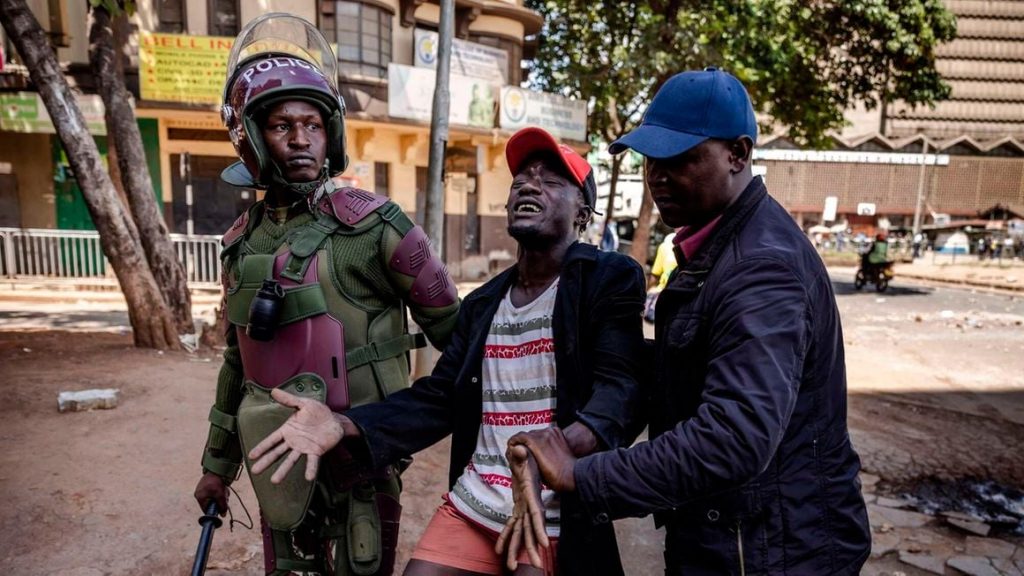
By FRED OLUOCH
Africa is coming across as the home of human rights violations with Amnesty International fingering several countries for atrocities.
The human rights abuse include extra-judicial killings, forced disappearances, arbitrary arrests and detentions, torture and other ill-treatments, restrictions on freedom of association and assembly, and gender-based violence.
In its report, “State of the World’s Human Rights,” Amnesty International says African governments remained largely indifferent to calls to tackle impunity, thereby allowing it to flourish, fuelling the cycle of violations and abuses, and disregard for the rule of law.
Sudan, South Sudan, Burundi, Ethiopia, the Democratic Republic of Congo, Eritrea and Kenya have all been fingered for official human rights abuses.
Country-specific instances cite Eritrean Defence Forces, sexual violence in the DRC and Mali targeting women and girls. Besides conflict-related abuses, the repression of dissent and freedom of assembly in Angola, Ethiopia, Kenya, Mali, Mozambique, Senegal and Somalia.
In many cases, security forces dispersed protests using excessive force; scores of protesters and bystanders were killed and injured, including in Angola, Ethiopia, Kenya, Mali, Mozambique, Senegal, Somalia, South Sudan, Tanzania, Burundi, and Ethiopia.
In Sudan, targeted attacks particularly in West Darfur, killed and injured civilians, while rape, extra-judicial killings and slavery are prevalent in areas controlled by the Rapid Support Forces (RSF).
In Burundi, reports of enforced disappearances, mostly of political opponents, continued; the National Intelligence Service and members of the ruling party’s youth wing, the Imbonerakure, were the main alleged perpetrators.
In Eritrea, the fate and whereabouts of 11 members of the G-15, a group of 15 senior politicians who spoke publicly against the president in 2001, remained unknown along with that of 16 journalists accused of being linked to the G-15.
“Governments in Africa must end the harassment and intimidation of journalists, human rights defenders, activists, and opposition members and leaders; immediately and unconditionally release anyone who is arbitrarily detained; and ensure media freedom is respected, including by allowing media outlets to operate independently,” the report says.
“Sudan Armed Forces (Saf) and RSF have demonstrated little concern for international humanitarian law as they carried out targeted and indiscriminate attacks that have killed and injured civilians and launched explosive weapons from densely populated neighbourhoods killing 12,000 people in 2023,” the report says.
This has triggered the largest displacement crisis in the world with more than 8 million people forced to flee. With no end to the conflict in sight, the hunger crisis that has gripped Sudan for months is now dangerously close to turning into famine.
Soldiers of the Eritrean Defence Forces held at least 15 women captive for nearly three months at a military camp in Ethiopia’s Tigray region, raping them repeatedly.
n government imposed a six-month nationwide state of emergency, following armed clashes between the army and the Fano militia in the Amhara region. It provided the pretext for the detention of hundreds of people who were denied access to lawyers and courts.
In Burundi, reports of enforced disappearances, mostly of political opponents, continued; the National Intelligence Service and members of the ruling party’s youth wing, the Imbonerakure, were the main alleged perpetrators.
In Eritrea, the fate and whereabouts of 11 members of the G-15, a group of 15 senior politicians who spoke publicly against the president in 2001, remained unknown along with that of 16 journalists accused of being linked to the G-15.
“Governments in Africa must end the harassment and intimidation of journalists, human rights defenders, activists, and opposition members and leaders; immediately and unconditionally release anyone who is arbitrarily detained; and ensure media freedom is respected, including by allowing media outlets to operate independently,” the report says.
Source: The EastAfrican


